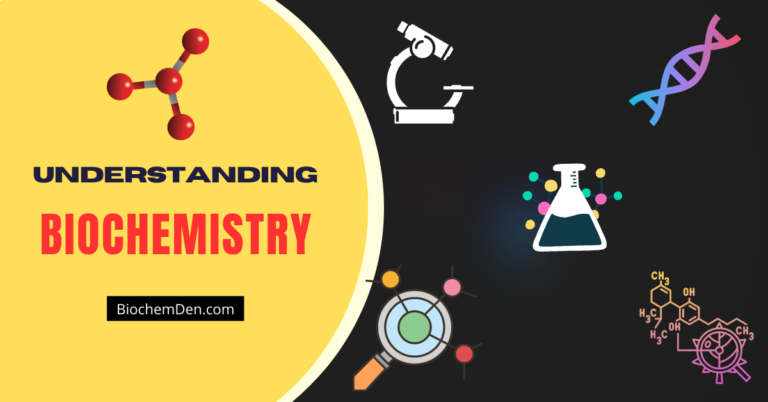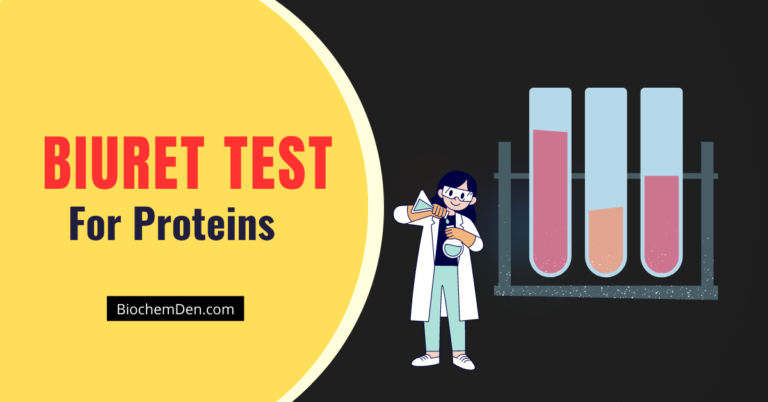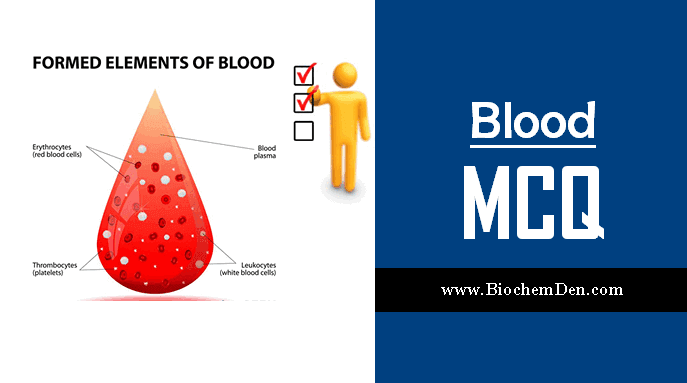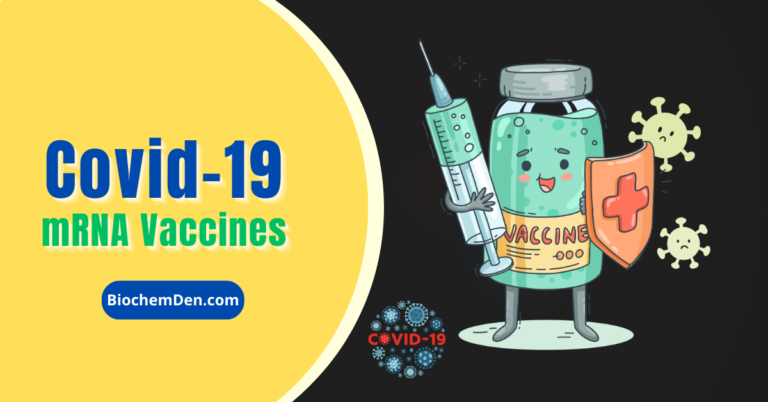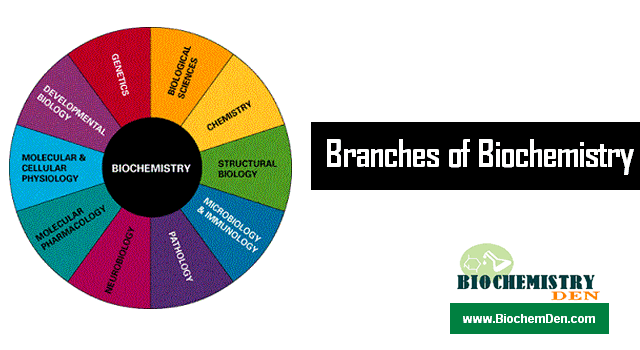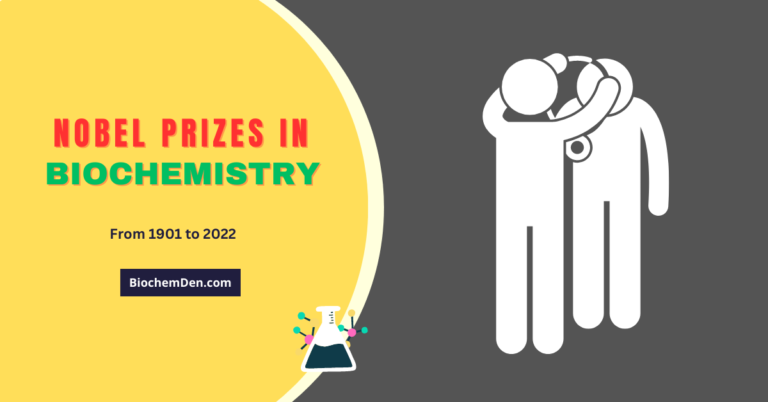Artificial Intelligence in Biochemistry has emerged as a groundbreaking force, reshaping the way scientists approach the complexities of biological systems. As the fields of artificial intelligence (AI) and biochemistry converge, they are unlocking unprecedented opportunities to accelerate research, enhance precision, and solve some of the most pressing challenges in the life sciences. From drug discovery and protein structure prediction to genomic analysis and metabolic pathway modeling, AI is proving to be an indispensable tool in the biochemist’s arsenal.
Biochemistry, the study of chemical processes within living organisms, generates vast amounts of intricate data. Traditional methods of analyzing this data often fall short due to their inability to handle the scale and complexity of biological information. This is where Artificial Intelligence in Biochemistry steps in, offering advanced computational techniques that can process, analyze, and interpret data with remarkable speed and accuracy. By leveraging machine learning, deep learning, and other AI-driven approaches, researchers are now able to uncover hidden patterns, predict outcomes, and design innovative solutions that were once thought impossible.
The integration of Artificial Intelligence in Biochemistry is not just a technological advancement; it is a paradigm shift that is transforming the entire landscape of life sciences. Whether it’s accelerating the development of life-saving drugs, enabling personalized medicine, or unraveling the mysteries of protein structures, AI is at the forefront of these revolutionary changes. However, as with any transformative technology, this integration comes with its own set of challenges, including data quality, ethical considerations, and the need for interdisciplinary collaboration.
In this article, we will explore the profound impact of Artificial Intelligence in Biochemistry, delving into its applications, benefits, challenges, and future prospects. By understanding how AI is revolutionizing this field, we can appreciate its potential to drive innovation, improve human health, and deepen our understanding of the biological world. Join us as we embark on a journey through the exciting intersection of AI and biochemistry, where science meets technology to shape the future of life sciences.
Artificial Intelligence in Biochemistry
Biochemistry, the study of chemical processes within living organisms, is a field that generates vast amounts of complex data. From genomic sequences to protein structures, the sheer volume and intricacy of biochemical data present significant challenges for traditional analytical methods. AI, with its ability to process and analyze large datasets, offers a powerful toolset to tackle these challenges.
1. AI-Driven Drug Discovery
One of the most promising applications of AI in biochemistry is in the field of drug discovery. Traditional drug discovery is a time-consuming and expensive process, often taking over a decade and costing billions of dollars. AI is streamlining this process by:
- Predicting Drug-Target Interactions: AI algorithms can analyze vast datasets to predict how different compounds will interact with biological targets. This enables researchers to identify potential drug candidates more quickly and accurately.
- Virtual Screening: AI-powered virtual screening allows researchers to evaluate millions of compounds in silico, significantly reducing the need for physical screening in laboratories. This not only speeds up the process but also reduces costs.
- De Novo Drug Design: AI can generate novel drug molecules from scratch, optimizing them for specific targets. This approach has the potential to uncover entirely new classes of drugs that may have been overlooked using traditional methods.
2. Protein Structure Prediction
Understanding the three-dimensional structure of proteins is crucial for deciphering their function and designing drugs that can interact with them. However, experimental methods for determining protein structures, such as X-ray crystallography and cryo-electron microscopy, are labor-intensive and time-consuming.
AI has made significant strides in protein structure prediction, as demonstrated by DeepMind’s AlphaFold. AlphaFold uses deep learning to predict protein structures with remarkable accuracy, often rivaling experimental methods. This breakthrough has the potential to accelerate research in biochemistry and related fields, enabling scientists to explore previously inaccessible proteins and their functions.
3. Genomic Analysis and Personalized Medicine
The human genome contains a wealth of information that can inform personalized medicine, tailoring treatments to individual patients based on their genetic makeup. However, analyzing genomic data is a complex task that requires sophisticated computational tools.
AI is playing a pivotal role in genomic analysis by:
- Identifying Genetic Variants: AI algorithms can sift through vast amounts of genomic data to identify genetic variants associated with diseases. This information can be used to develop targeted therapies and improve diagnostic accuracy.
- Predicting Disease Risk: By analyzing patterns in genomic data, AI can predict an individual’s risk of developing certain diseases, enabling early intervention and preventive measures.
- Optimizing Treatment Plans: AI can analyze patient data, including genomic information, to recommend personalized treatment plans that maximize efficacy and minimize side effects.
4. Metabolic Pathway Analysis
Metabolic pathways are complex networks of chemical reactions that occur within cells. Understanding these pathways is essential for developing treatments for metabolic disorders and optimizing biotechnological processes.
AI is enhancing metabolic pathway analysis by:
- Modeling Metabolic Networks: AI can construct detailed models of metabolic networks, allowing researchers to simulate and predict the effects of genetic modifications or environmental changes.
- Identifying Key Enzymes: AI can identify enzymes that play critical roles in metabolic pathways, providing targets for drug development or genetic engineering.
- Optimizing Bioproduction: In biotechnology, AI can optimize metabolic pathways to enhance the production of valuable compounds, such as biofuels or pharmaceuticals.
5. AI in Structural Biology
Structural biology seeks to understand the molecular structure of biological macromolecules, such as proteins and nucleic acids. AI is transforming this field by:
- Automating Structure Determination: AI can automate the process of determining molecular structures from experimental data, reducing the time and effort required.
- Enhancing Molecular Dynamics Simulations: AI can improve the accuracy and efficiency of molecular dynamics simulations, providing insights into the behavior of biomolecules over time.
- Facilitating Drug Design: By providing detailed structural information, AI can aid in the design of drugs that precisely target specific molecular structures.
Benefits of AI in Biochemistry
The integration of AI into biochemistry offers numerous benefits, including:
1. Accelerated Research
AI can process and analyze data at speeds far beyond human capabilities, significantly accelerating the pace of research. This is particularly valuable in fields like drug discovery, where time is of the essence.
2. Enhanced Accuracy
AI algorithms can identify patterns and correlations in data that may be missed by human researchers, leading to more accurate predictions and insights.
3. Cost Reduction
By automating labor-intensive tasks and reducing the need for physical experiments, AI can lower the costs associated with biochemical research.
4. Innovative Solutions
AI’s ability to generate novel hypotheses and explore uncharted areas of biochemistry can lead to groundbreaking discoveries and innovative solutions to complex problems.
5. Personalized Medicine
AI’s role in genomic analysis and personalized medicine has the potential to revolutionize healthcare, offering treatments tailored to individual patients based on their genetic makeup.
Challenges and Ethical Considerations
While the benefits of AI in biochemistry are substantial, there are also challenges and ethical considerations that must be addressed:
1. Data Quality and Availability
AI algorithms rely on large, high-quality datasets to function effectively. In biochemistry, obtaining such datasets can be challenging due to the complexity and variability of biological systems.
2. Interpretability
AI models, particularly deep learning algorithms, are often considered “black boxes” because their decision-making processes are not easily interpretable. This lack of transparency can be a barrier to their adoption in critical areas like drug discovery and personalized medicine.
3. Ethical Concerns
The use of AI in biochemistry raises ethical questions, particularly in areas like genomic analysis and personalized medicine. Issues such as data privacy, consent, and the potential for genetic discrimination must be carefully considered.
4. Integration with Traditional Methods
While AI offers powerful tools, it is not a replacement for traditional biochemical methods. Integrating AI with existing experimental techniques requires careful planning and collaboration between computational and experimental researchers.
5. Regulatory Hurdles
The use of AI in drug discovery and other areas of biochemistry may face regulatory challenges, as existing frameworks may not be equipped to handle the unique aspects of AI-driven research.
Future Prospects of Ai in Biochemistry
The future of Artificial Intelligence in Biochemistry is incredibly promising, with several exciting developments on the horizon that have the potential to redefine the boundaries of scientific discovery and innovation. As AI technologies continue to evolve, their integration into biochemistry is expected to unlock new possibilities, streamline research processes, and address some of the most complex challenges in the life sciences. Below, we explore the key areas where AI is poised to make a transformative impact in the coming years.
1. AI-Enhanced Drug Development
The pharmaceutical industry stands to benefit immensely from the advancements in Artificial Intelligence in Biochemistry. AI is already revolutionizing drug discovery by accelerating the identification of potential drug candidates and predicting their efficacy. In the future, AI’s role in drug development is expected to expand even further:
- Rapid Drug Candidate Identification: AI algorithms can analyze vast chemical libraries and biological datasets to identify promising drug candidates in a fraction of the time required by traditional methods. This will significantly shorten the drug discovery timeline, bringing life-saving treatments to patients faster.
- Optimized Clinical Trials: AI can optimize the design of clinical trials by identifying the most suitable patient populations, predicting potential side effects, and determining optimal dosages. This will not only improve the success rates of clinical trials but also reduce costs and risks.
- Personalized Treatment Predictions: By analyzing patient-specific data, including genetic information and medical history, AI can predict how individuals will respond to specific treatments. This will enable the development of personalized therapies tailored to each patient’s unique needs.
2. Advanced Protein Engineering
Proteins are the workhorses of biological systems, and understanding their structure and function is critical for advancements in medicine and biotechnology. Artificial Intelligence in Biochemistry is set to revolutionize protein engineering by enabling the design of novel proteins with specific functions:
- De Novo Protein Design: AI can generate entirely new protein structures with desired properties, such as enhanced stability or catalytic activity. This has applications in drug development, industrial enzymes, and synthetic biology.
- Enzyme Optimization: AI can optimize existing enzymes for specific industrial or medical applications, such as breaking down environmental pollutants or producing biofuels. This could lead to more sustainable and efficient biotechnological processes.
- Disease-Targeting Proteins: AI-driven protein engineering could lead to the creation of proteins that specifically target disease-causing molecules, offering new therapeutic options for conditions that are currently difficult to treat.
3. Integration with Other Emerging Technologies
The synergy between Artificial Intelligence in Biochemistry and other cutting-edge technologies is expected to drive unprecedented advancements in the field. For example:
- CRISPR and Gene Editing: AI can enhance the precision and efficiency of CRISPR-based gene editing by predicting the outcomes of genetic modifications and identifying optimal target sites. This could lead to breakthroughs in gene therapy for genetic disorders and beyond.
- Nanotechnology: AI can optimize the design and delivery of nanomedicines, ensuring that therapeutic agents are delivered precisely to their target sites within the body. This could improve the efficacy of treatments while minimizing side effects.
- Synthetic Biology: By combining AI with synthetic biology, researchers can design and engineer biological systems with novel functions, such as microbes that produce biofuels or biodegradable plastics.
4. AI in Education and Training
The integration of Artificial Intelligence in Biochemistry is not limited to research and development; it also has the potential to transform education and training in the life sciences:
- Personalized Learning: AI-powered platforms can provide personalized learning experiences tailored to individual students’ needs, helping them master complex biochemical concepts more effectively.
- Virtual Laboratories: AI-driven virtual labs can simulate real-world experiments, allowing students to practice and refine their skills in a risk-free environment. This is particularly valuable for remote or resource-limited educational settings.
- Training the Next Generation of Scientists: As AI becomes an integral part of biochemistry, training programs will need to equip students with the skills to use AI tools and interpret their outputs. This will ensure that the next generation of scientists is prepared to harness the full potential of AI in their work.
5. Global Collaboration and Data Sharing
One of the most exciting prospects of Artificial Intelligence in Biochemistry is its ability to facilitate global collaboration and data sharing. By breaking down geographical and institutional barriers, AI can accelerate scientific progress:
- Open Data Platforms: AI-powered platforms can enable researchers worldwide to share and access biochemical data, fostering collaboration and innovation. This will be particularly valuable for addressing global challenges, such as infectious diseases and climate change.
- Crowdsourced Research: AI can help coordinate large-scale, crowdsourced research initiatives, where scientists from different disciplines and regions work together to solve complex problems.
- Accelerated Discoveries: By pooling resources and expertise, global collaborations powered by AI can lead to faster discoveries and more impactful outcomes, benefiting humanity as a whole.
6. Ethical AI and Responsible Innovation
As Artificial Intelligence in Biochemistry continues to advance, it is essential to address the ethical and societal implications of its use. Ensuring that AI is developed and deployed responsibly will be critical to maximizing its benefits while minimizing potential risks:
- Transparency and Explainability: Efforts must be made to make AI algorithms more transparent and interpretable, particularly when they are used in critical applications like drug development and personalized medicine.
- Data Privacy and Security: Protecting the privacy and security of sensitive biochemical and genetic data will be paramount. Robust frameworks must be established to ensure that data is used ethically and responsibly.
- Equitable Access: Ensuring that the benefits of AI in biochemistry are accessible to all, regardless of geographic location or economic status, will be essential for achieving global health equity.
The future of Artificial Intelligence in Biochemistry is brimming with potential, offering transformative opportunities to advance scientific knowledge, improve human health, and address global challenges. From revolutionizing drug development and protein engineering to fostering global collaboration and transforming education, AI is poised to play a central role in shaping the future of biochemistry. However, realizing this potential will require careful consideration of ethical, societal, and technical challenges, as well as a commitment to responsible innovation.
As we look ahead, it is clear that the integration of AI into biochemistry is not just a technological evolution—it is a scientific revolution that will redefine the boundaries of what is possible in the life sciences. By embracing this revolution, we can unlock new frontiers of discovery and create a brighter, healthier future for all.
FAQs on Artificial Intelligence in Biochemistry
What is Artificial Intelligence in Biochemistry?
Artificial Intelligence (AI) in Biochemistry refers to the use of advanced computer algorithms and machine learning techniques to analyze and interpret complex biological data. It helps scientists understand chemical processes in living organisms, predict outcomes, and solve problems faster and more accurately than traditional methods.
How is AI used in drug discovery?
AI speeds up drug discovery by analyzing large datasets to identify potential drug candidates, predicting how they will interact with biological targets, and optimizing their design. It also helps in virtual screening, where millions of compounds are tested on computers, saving time and money.
Can AI predict protein structures?
Yes, AI can predict protein structures with high accuracy. Tools like DeepMind’s AlphaFold use deep learning to analyze protein sequences and predict their 3D shapes. This helps researchers understand protein functions and design drugs that target specific proteins.
What role does AI play in personalized medicine?
AI analyzes genetic and medical data to create personalized treatment plans. It can predict how a patient will respond to a specific drug, identify genetic risks for diseases, and recommend therapies tailored to an individual’s unique genetic makeup.
How does AI help in metabolic pathway analysis?
AI models metabolic pathways, which are networks of chemical reactions in cells. It helps researchers understand how these pathways work, identify key enzymes, and optimize them for applications like producing biofuels or treating metabolic disorders.
What is the future of AI in Biochemistry?
The future is bright! AI will likely revolutionize drug development, enable advanced protein engineering, and integrate with technologies like CRISPR and nanotechnology. It will also transform education and foster global collaboration, leading to faster discoveries and innovative solutions for global health challenges.
Conclusion
Artificial Intelligence is reshaping the landscape of biochemistry, offering powerful tools to tackle some of the most complex challenges in the life sciences. From drug discovery to personalized medicine, AI is enabling faster, more accurate, and more innovative research. However, the integration of AI into biochemistry also presents challenges that must be addressed, including data quality, interpretability, and ethical considerations.
As AI continues to evolve, its impact on biochemistry is likely to grow, driving new discoveries and transforming the way we understand and interact with the biological world. The future of biochemistry is bright, and AI is poised to play a central role in unlocking its full potential.
Discover more from Biochemistry Den
Subscribe to get the latest posts sent to your email.

